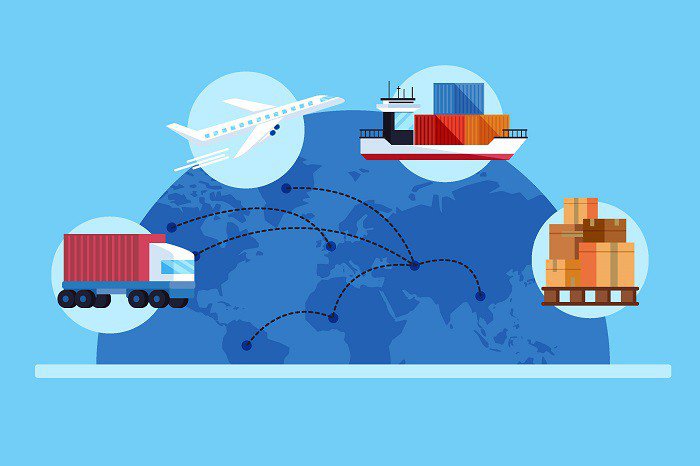
International trade has emerged as a pillar of economic development and growth in the ever-expanding global economy. Businesses all over the world are constantly looking for effective and affordable ways to ship goods across borders. International shipping by sea stands out as a key player among the many available modes of transportation. This article examines the undeniable advantages of freight shipping, also understood as ocean freight shipping, in connecting economies and driving international trade. By examining its advantages, we shed light on why freight by sea remains a preferred choice for businesses and freight marketplaces.
Top 7 Benefits of International Shipping By Sea
Cost-Effectiveness
One of the most compelling reasons behind the popularity of international sea shipping is its cost-effectiveness. Shipping goods by sea typically offers much lower rates per unit of cargo than other modes of transportation like air freight or road transport. When many items are transported in a single shipment, the cost can be divided among them, resulting in significant cost savings. Sea freight shipping is a desirable option for companies that deal with bulk or high-volume shipments due to its cost advantage.
High Capacity And Versatility
Modern cargo ships have a huge carrying capacity and can travel great distances with a great deal of cargo. This high capacity guarantees that large quantities of goods can be transported, which is advantageous for industries that deal with raw materials, the automotive sector, and consumer goods. To optimize container usage, a CBM calculator can be invaluable in accurately measuring cargo volume, ensuring the right amount of space is used efficiently. Sea freight shipping is also very flexible, allowing for the transport of a variety of cargo, including containers, dry bulk, liquid bulk, and oversized items. As a result of sea shipping's adaptability, a variety of industries can use it to their advantage.
Reduced Carbon Footprint
International sea shipping is essential to lowering the transportation sector's carbon footprint in this age of environmental awareness. Despite the fact that they may use a lot of fuel, ships are much more efficient at transporting a lot of cargo, which results in significantly lower emissions per unit of cargo than air freight. The shipping industry has also made progress in implementing cleaner technologies, such as investing in eco-friendly vessel designs and using low-sulfur fuels. As a result, freight by sea presents a greener option for businesses looking to reduce their environmental influence.
Global Connectivity
Nearly all of the world's landmasses are connected by shipping routes, which offer unmatched global connectivity for trade. Major ports serve as hubs, bridging continents and easing the flow of goods between various areas. Businesses can access new markets, source materials from far-off suppliers, and increase their global presence thanks to this extensive network of shipping routes. In addition, the maritime sector frequently cooperates with the rail, road, and aviation sectors to build seamless intermodal connections for a complete logistics solution.
Reliability and Safety
Sea freight shipping has a reputation for dependability and security. Modern ships are outfitted with cutting-edge communication and navigational systems, which lower the risk of mishaps and increase overall safety. In addition, compared to other modes of transportation like air or road, sea routes are less prone to congestion and weather disruptions. Therefore, when planning their shipments, businesses can rely on predictable schedules and transit times, lowering supply chain uncertainties and ensuring a more efficient flow of goods.
Economies of Scale
The use of the sea for international shipping offers economies of scale. The average cost per unit of cargo decreases as cargo volume does. Greater capacity on larger ships helps to maximize efficiency, which lowers operating costs for shipping companies. Businesses using sea freight services benefit from these savings, making it an affordable option, particularly for bulk shipments. The cost-efficiency of freight by sea has also led to the growth of technological freight marketplaces that link businesses with shipping providers, facilitating the process and promoting healthy competition.
Reduced Theft And Pilferage
Sea freight shipping provides an additional layer of security against theft and pilferage when compared to land transportation. Cargo ship environments are secure and closely watched, which makes it difficult for unauthorized entry and lowers the risk of cargo theft. Additionally, the sealed nature of the shipping containers used for sea freight makes any tampering during transit obvious. These safety precautions improve the protection of goods during transportation, giving businesses additional peace of mind.
Conclusion
International shipping by sea, also called sea freight shipping or ocean freight shipping, persists to play a key role in the international economy. It is a preferred option for companies engaged in international trade due to its cost effectiveness, high capacity, and versatility. The advantages for the environment, global connectivity, and safety features reinforce its status as an essential mode of transportation. Freight by sea continues to be a guiding light of dependability and cost-effectiveness in the ever-evolving landscape of international trade as businesses continue to look for efficient and sustainable shipping solutions.





 Get instant quote
and compare offers in real time
Get instant quote
and compare offers in real time